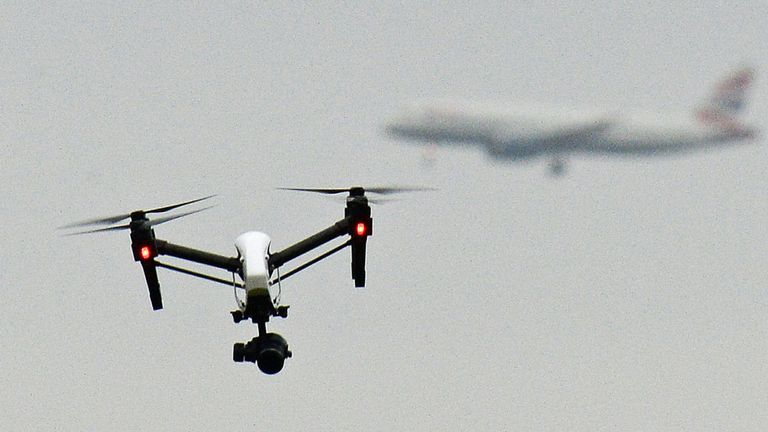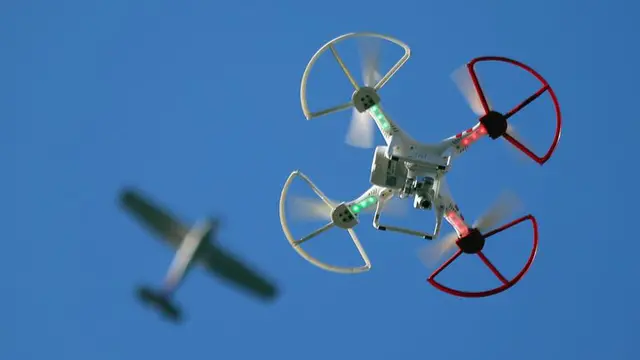More than four out of five people in the UK support the greater use of drones by the emergency services, as long as stringent safety, security and monitoring measures are in place, a new survey suggests.
The report commissioned by Vodafone made several recommendations for overall drone policy including a "blue light" fund for drones in the emergency services and the creation a traffic management system to help co-ordinate drone flights with other airspace use.
According to the research, 86% of those asked support the idea of using drones to support emergency response, 79% with the idea of drones being used to assist the police and 61% to help with monitoring as part of environmental conservation.
Vodafone UK chief executive Nick Jeffery said: "Drones can provide crucial information to emergency services responding to incidents.
"They can assess fires, deliver medical supplies and help businesses survey hazardous conditions such as construction sites, power lines and our own mobile masts quicker and more safely.
"On the flip side, rogue drones can pose security risks. By working in collaboration with government, the public sector and regulators, we can shape legislation to ensure the transition from a consumer toy to a vital support service while protecting our critical infrastructure."
Current drone regulation has been criticised for failing to keep control of the vast number of new, privately-owned devices which have appeared in the last ten years as the technology and gadgets came into fashion.

Image:The report suggests a traffic management system to help co-ordinate drone flights
Current drone rules stipulate that the craft must be kept no further than 500 metres from view, not within 50 metres of people or structures and not within 150 metres of large gatherings.
However, a number of high-profile incidents in recent years, most notably at
Gatwick Airport
in 2018, have shown tighter regulation is still required.
New rules were introduced in late 2019 which require users to now obtain an operator ID before their gadget is flown outdoors.
People who fly drones are also required to get a separate flyer ID by passing a theory test.
 简体中文
简体中文

